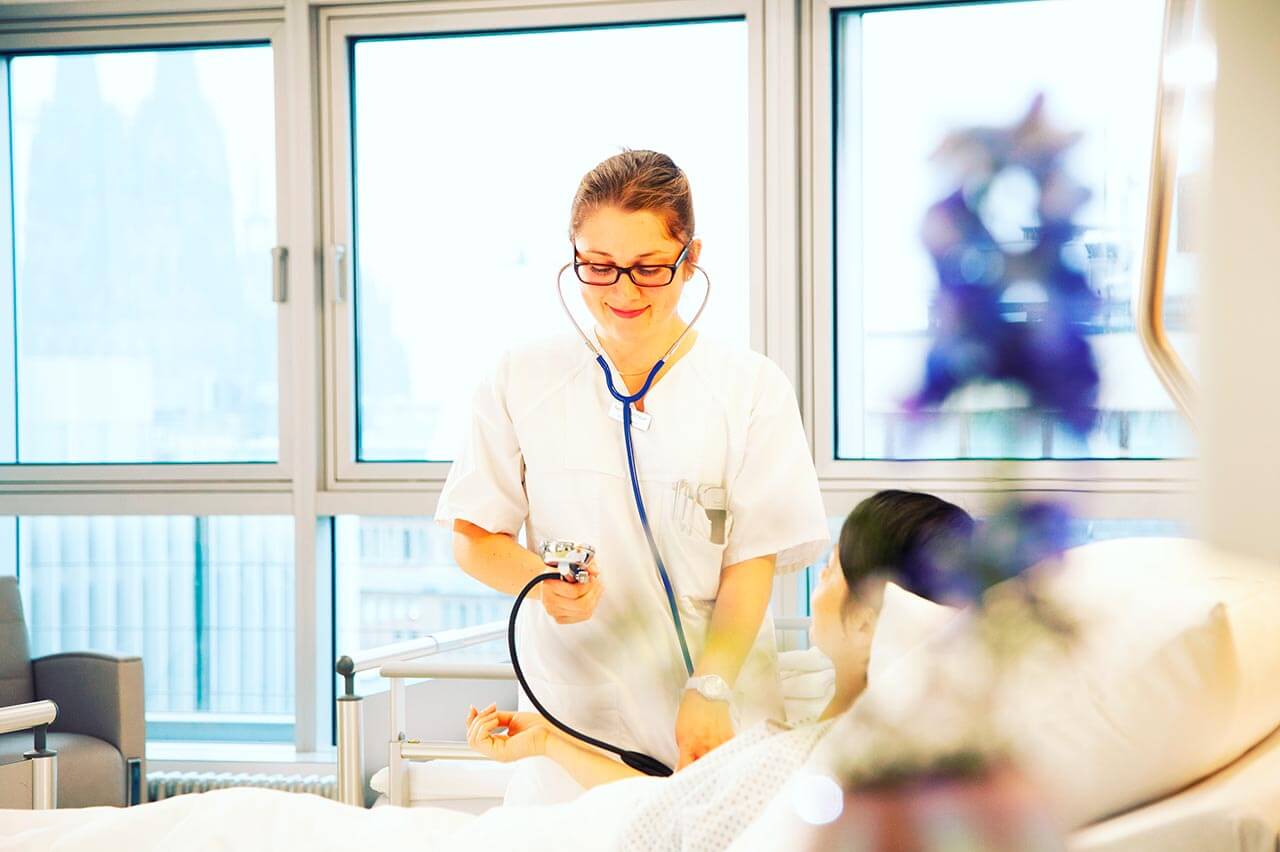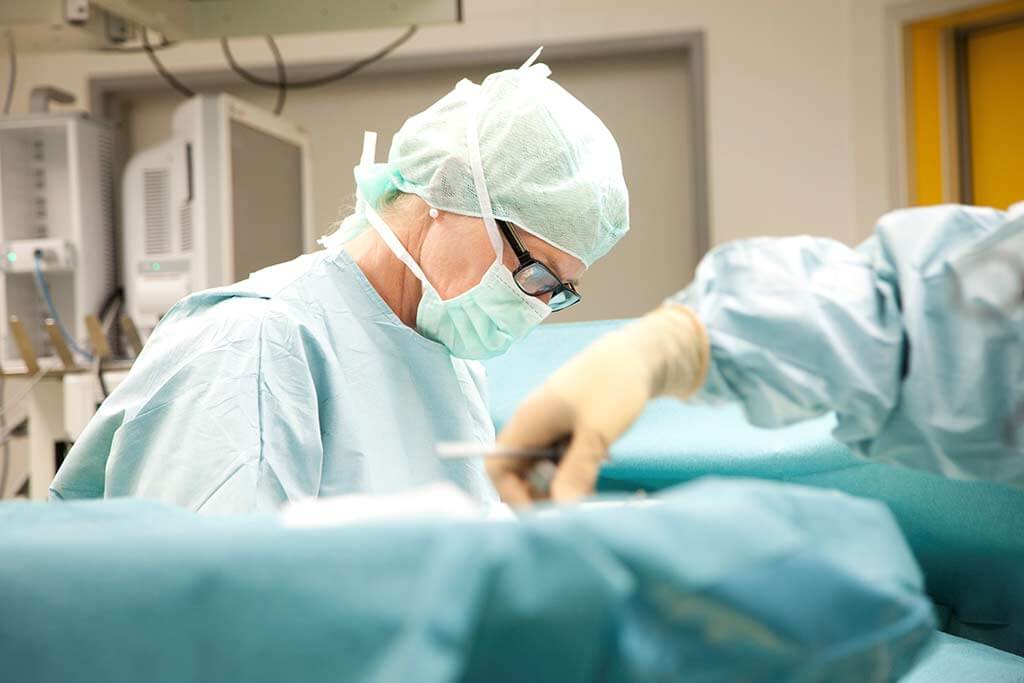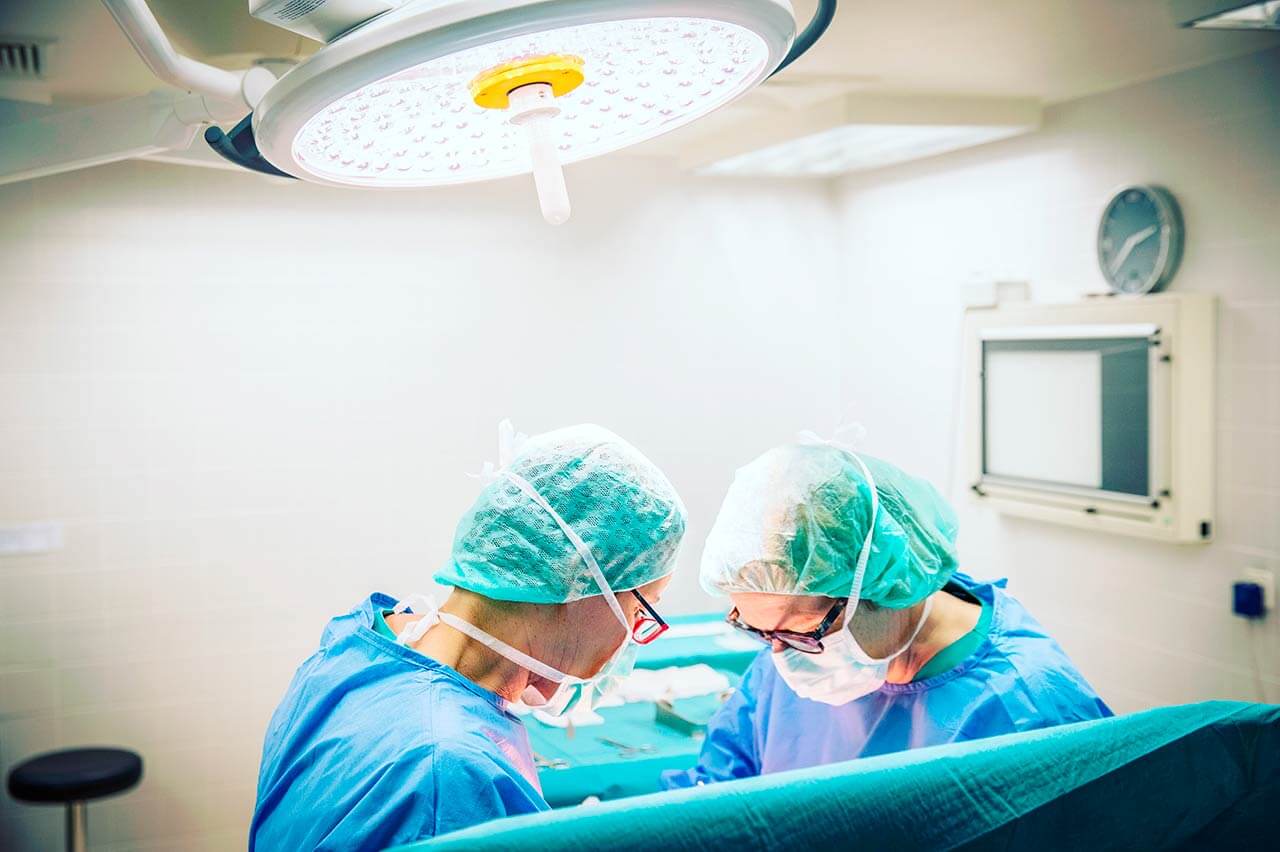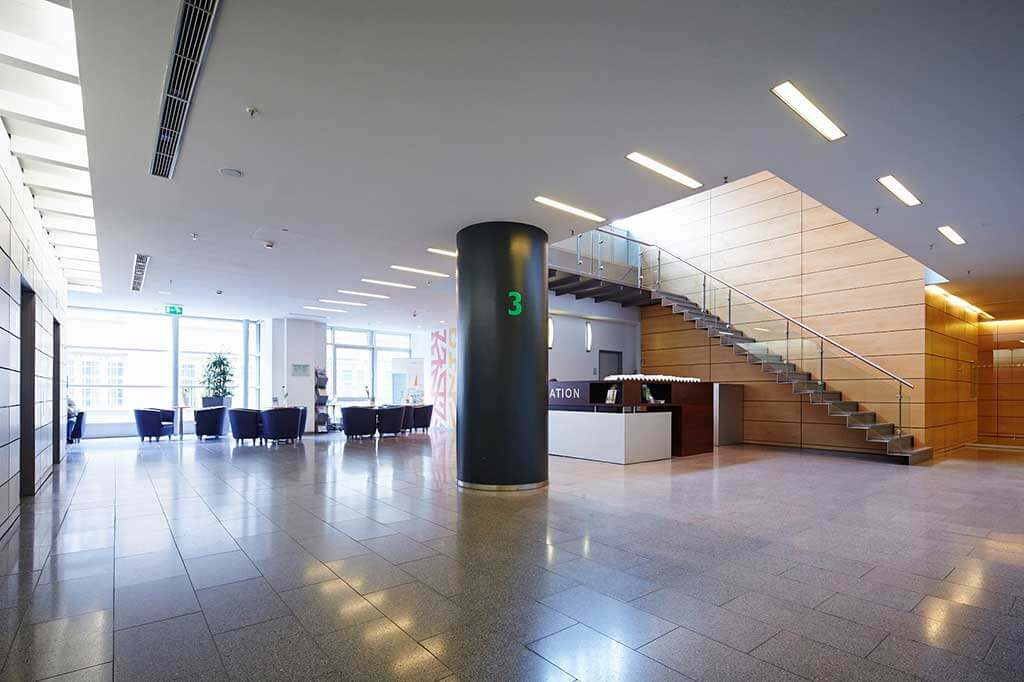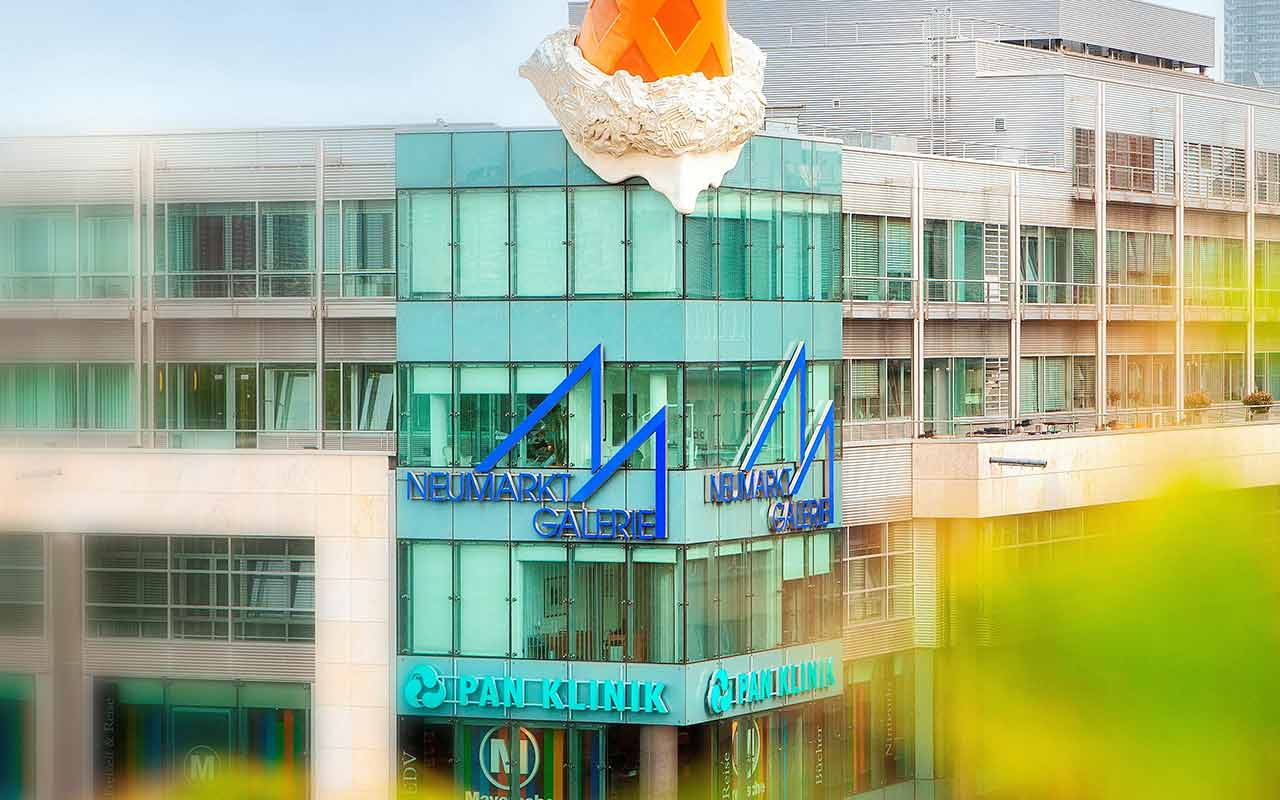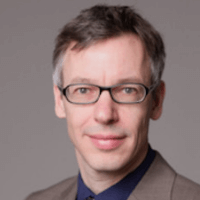
The program includes:
- Initial presentation in the clinic
- clinical history taking
- review of medical records
- physical examination
- laboratory tests:
- complete blood count
- blood glucose analysis
- general urine analysis
- biochemical analysis of blood
- inflammation markers (CRP, ESR)
- blood coagulation analysis (aPTT, PT, INR)
- CT/MRI (if clinically indicated, additional cost is 650/1200€)
- nursing services
- consultation of related specialists
- treatment by chief physician and all leading experts
- explanation of individual treatment plan
- written statement
Required documents
- Medical records
- Results of hormone blood tests (if available)
Service
You may also book:
 BookingHealth Price from:
BookingHealth Price from:
About the department
The Department of Endocrinology and Diabetology at the PAN Clinic Cologne offers all the options of modern medicine for the diagnostics and conservative treatment of diseases of the endocrine organs – thyroid gland, parathyroid glands, adrenal glands, pituitary gland and reproductive glands (gonads). The competence of the department's doctors also includes medical care for the patients with type 1 and type 2 diabetes mellitus. The department is headed by Dr. med. Georg Mansmann.
The specialists of the medical facility have all the necessary resources to assess the condition and functioning of the endocrine organs, as well as to effectively eliminate hormonal disorders. The treatment involves the use of modern drugs to regulate the work of the endocrine system. The doctors from related medical fields are often involved in the therapeutic process, including gynecologists, specialists in reproductive medicine, urologists, neurosurgeons, nutritionists, etc. Thus, all the aspects of the patient's health status are taken into account during the treatment planning, which contributes to the achievement of the best treatment outcome.
The department's endocrinologists often admit patients with thyroid diseases: Hashimoto's thyroiditis, postpartum thyroiditis, De Quervain's thyroiditis, nodular goiter, functional autonomy of the thyroid gland, thyroid cancer and other pathologies. To make an accurate diagnosis, both laboratory and instrumental tests are used. The standard diagnostic protocol includes an assessment of thyroid hormone levels (thyroid-stimulating hormone, thyroxine and triiodothyronine) and ultrasound scanning. In case of suspected cancer, a thyroid biopsy is also required. The treatment regimen for thyroid pathologies is developed for each patient individually and often includes hormone replacement therapy. During the treatment, the patient is under the supervision of doctors who, if necessary, adjust the prescribed treatment course, depending on its success.
Endocrinologists also provide medical care to the patients with parathyroid and adrenal diseases, disorders of calcium and phosphorus metabolism, neuroendocrine gastrointestinal tumors, gonadal (testicular and ovarian) disorders and many other pathologies. When a diagnosis is confirmed, the department's specialists prescribe an optimal drug therapy regimen for a patient in order to alleviate symptoms and normalize hormone levels, which in turn leads to an improvement in the patient's health.
The department's therapeutic offer also includes the diagnostics and treatment of diabetes mellitus – the disease characterized by a chronic increase in blood sugar levels caused by insulin deficiency or its incorrect action. The basis of diabetes mellitus diagnostics is a laboratory test to assess blood and urine sugar levels. Diabetes mellitus is an incurable disease, and therefore the treatment is aimed at normalizing blood glucose levels and metabolic processes, as well as preventing complications of diabetes mellitus. The primary and integral part of the treatment regimen is diet correction. Quitting bad habits (smoking, drinking alcohol) and changing a sedentary lifestyle to a more active one are also important. Nevertheless, in most cases, these measures are not enough to compensate for diabetes mellitus, and therefore they are supplemented with drug therapy (intake of antidiabetic drugs and insulin therapy).
The department's range of medical services includes:
- Diagnostics and treatment of thyroid diseases
- Hashimoto's thyroiditis
- Postpartum thyroiditis
- De Quervain's thyroiditis
- Riedel's thyroiditis
- Nodular goiter
- Functional autonomy of the thyroid gland
- Thyroid cancer
- Diagnostics and treatment of pituitary and hypothalamus diseases
- Pituitary failure
- Prolactinoma
- Cushing's disease
- Diagnostics and treatment of parathyroid diseases
- Hypoparathyroidism
- Hyperparathyroidism
- Diagnostics and treatment of adrenal diseases
- Primary adrenal insufficiency
- Cushing's disease
- Primary hyperaldosteronism
- Pheochromocytoma
- Adrenal incidentaloma
- Adrenal cancer
- Adrenogenital syndrome
- Diagnostics and treatment of gonadal (testicular and ovarian) disorders
- Androgen deficiency
- Polycystic ovary syndrome
- Hormonal changes during menopause
- Diagnostics and treatment of disorders of calcium and phosphorus metabolism
- Osteoporosis
- Diagnostics and treatment of neuroendocrine gastrointestinal tumors (carcinoids, vipomas)
- Diagnostics and treatment of type 1 and 2 diabetes mellitus
- Diagnostics and treatment of secondary arterial hypertension caused by endocrine disorders
- Diagnostics and treatment of other endocrine disorders
Curriculum vitae
Higher Education and Professional Career
- 1987 - 1996 Study of Human Medicine, Faculty of Medicine, University of Cologne and Faculty of Medicine, University of Montpellier, France.
- 01.1997 - 07.1999 Internship, Department of Hematology and Oncology, University Hospital Cologne.
- 07.1999 - 11.2000 Assistant Physician, Department of Hematology and Oncology, University Hospital Cologne.
- 11.2000 - 09.2001 Scientific Coordinator of the Competence Centers for Malignant Lymphomas, Cologne.
- 10.2001 - 12.2011 Assistant Physician, Department of Endocrinology, Diabetology and Rheumatology, University Hospital Duesseldorf.
- 2006 - 2011 Board certification in Internal Medicine, Department of Endocrinology, Diabetology and Rheumatology, University Hospital Duesseldorf.
- Since 2012 Chief Physician of the Department of Endocrinology and Diabetology at the PAN Clinic Cologne.
Professional Qualifications
- 06.2006 Board certification in Internal Medicine.
- 04.2009 Specialization in Endocrinology and Diabetology.
- 09.2000 Specialization in Emergency Medical Care.
- 02.2010 Specialization in Radiation Protection.
- 03.2011 Medical Auditing Training, German Society for Pharmaceutical Medicine.
- 06.2011 Specialization in the use of ionizing radiation for assessing bone mineral density (osteodensitometry).
Memberships in Professional Societies
- German Society of Endocrinology (DGE).
- German Society of Internal Medicine (DGIM).
- German Society of Hematology and Medical Oncology (DGHO).
- North Rhine-Westphalian Society for Endocrinology.
Photo of the doctor: (c) PAN Klinik
About hospital
The PAN Clinic Cologne is a multidisciplinary medical facility that combines advanced medicine, excellent quality of patient care and a high level of comfort. Founded in 1999, the clinic is located in the very heart of Cologne. During this time, the medical complex has gained long clinical experience, but at the same time it has preserved its primary concept of medical care – high-quality diagnostics and treatment using the achievements of modern medicine.
Today, a huge team of doctors at the clinic admits patients in 25 medical fields, including neurosurgery, neurology, orthopedics, cardiology, gynecology, mammology, urology, endocrinology, plastic surgery, etc. It is worth noting that the clinic employs the best specialists with a wealth of experience and thorough clinical training in the best medical facilities in Germany, other countries of Europe and USA. The clinic's medical team includes many professors who are distinguished by outstanding achievements in the treatment of diseases of a particular profile and who successfully conduct research activities, participate in national and international congresses, symposia and other events.
The clinic annually provides treatment to more than 10,000 patients, and more than 3,000 interventions of varying complexity are performed in its operating rooms. The operating theaters have state-of-the-art technology and equipment for classical open surgery and minimally invasive interventions. In addition, all departments of the medical facility have advanced diagnostic equipment, so that doctors always make the correct diagnosis, which determines the success of subsequent treatment. During the therapeutic process, the specialists strive to choose the most sparing, but at the same time highly effective treatment regimen.
The quality of medical services provided in the clinic is awarded with the prestigious DIN ISO 9001 certification, and therefore patients trust their health to doctors with complete confidence and benefit from the optimal treatment of the European standard.
Photo: (с) PAN Klinik, (c) depositphotos
Accommodation in hospital
Patients rooms
The patients of the PAN Clinic Cologne live in light and cozy rooms with a modern design. A standard patient room includes a comfortable automatically adjustable bed, a bedside table, an air conditioning, a DVD player, a telephone, a TV and a nurse call system. The patient rooms also have Wi-Fi. Each patient room has an ensuite bathroom with shower and toilet. The bathroom also has a hairdryer and towels.
If desired, the patients can live in enhanced-comfort rooms. These patient rooms are distinguished by their more exclusive interiors, as well as beautiful views of the Cologne Cathedral and cityscapes. The bathrooms in these enhanced-comfort facilities include disposable slippers, a bathrobe, towels and toiletries. In addition, the patients living in enhanced-comfort rooms are offered a special menu.
Meals and Menus
The patient and his accompanying person are offered tasty and balanced three meals a day: buffet style breakfast and dinner, as well as lunch consisting of 3-4 courses. If for some reason you do not eat all the foods, you will be offered an individual menu. Please inform the medical staff about your dietary preferences prior to treatment.
Further details
Standard rooms include:
Religion
The religious services are available upon request.
Accompanying person
During the inpatient program, the accompanying person can live with the patient in a patient room or a hotel of his choice. Our managers will help you choose the most suitable option.
Hotel
During the outpatient program, the patient can stay at the hotel of his choice. Our managers will help you choose the most suitable option.
